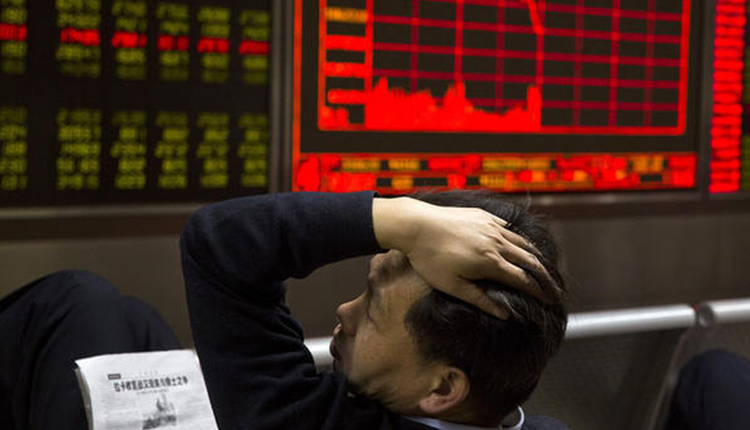Asia’s stock indexes were largely lower on Thursday, on continued emerging markets fears, and following a sell-off in tech stocks overnight on Wall Street.
The Nikkei 225 saw a decline of 0.41 percent to close at 22,487.94, as electricity generator and distributor Hokkaido Electric Power’s stock fell by 6.43 percent on the back of a powerful earthquake which earlier left residents of the island without electricity.
South Korea’s Kospi also ended the day lower by 0.18 percent at 2,287.61, as major tech names such as Samsung Electronics and SK Hynix saw losses. Samsung Publishing, however, surged ahead for another consecutive day. The company continued its winning streak since its cover of the children’s song “Baby Shark” cracked the top 40 on the U.K. charts late last month, closing higher by 13.19 percent.
Down Under, the ASX 200 slid 1.12 percent to close at 6,160.4, with the telecommunications sector ended up by 2.59 percent after Telstra lowered its guidance for fiscal 2019 to account for the release of the corporate plan for Australia’s National Broadband Network. Telstra’s shares closed 3.31 percent higher for the trading day.
Over in the Greater China region, Hong Kong’s Hang Seng index was down by 1.31 percent as of 3:22 p.m. HK/SIN. On the mainland, the Shanghai composite ended the trading day down by 0.47 percent at around 2,691.59 while the Shenzhen composite was 0.721 percent down to close at about 1,431.86.
MSCI’s index of Asia Pacific shares excluding Japan tumbled 3.08 percent in Asia afternoon trade.
Emerging market (EM) currencies remained in focus with the carnage that has continued this week, hitting not just the Argentine peso and Turkish lira but also Asian currencies like the Indonesian rupiah and Indian rupee.
“The onslaught of strong USD and sell-off in EM currencies, led by the Argentine Peso (ARS) (and) Turkish Lira (TRY) have paused; with some signs of (a) buy-back,” said Mizuho Bank in a note on Thursday.
“But, this pause should not be mistaken as a turning point because there is no sight of a panacea for the underlying chills about EM (emerging markets) just yet,” it warned.
Overnight on Wall Street, the Nasdaq Composite saw its worst day since Aug. 15 as it fell by 1.2 percent to 7,995.17. The S&P 500 also slid by 0.3 percent to 2,888.60. The Dow Jones Industrial Average bucked the overall trend stateside by closing 22.51 points higher at 25,974.99.
The sell-off in the Nasdaq and S&P 500 was led by a fall in tech stocks, as Twitter CEO Jack Dorsey and Facebook COO Sheryl Sandberg both testified in front of Congress, addressing issues surrounding online election meddling and abuse on social platforms.
Trade also remains in focus for markets as Canada and the U.S. resumed negotiations on Wednesday regarding the future of the North American Free Trade Agreement. The ongoing trade war between the U.S. and China could also intensify this week, with President Donald Trump reportedly saying over the weekend that he is ready to impose tariffs on an additional $200 billion worth of Chinese imports as soon as the public comment period ends on Thursday.
The U.S. dollar index, which tracks the greenback against a basket of currencies, was at 95.160 as of 3:04 p.m. HK/SIN, recovering from its earlier low but still off its high from yesterday.
The Japanese yen held on to gains against the dollar at 111.34 as of 3:05 p.m. HK/SIN. At the same time, the Australian dollar lost its earlier gains to trade lower at 0.7168.
Oil prices were down in the afternoon of Asian trade. The global benchmark Brent crude futures fell by about 0.1 percent at $77.19 per barrel. U.S. West Texas Intermediate (WTI) crude futures slid 0.22 percent at $68.57 per barrel.
